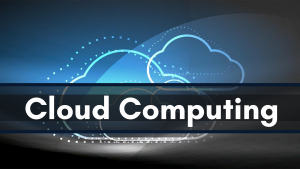Even a decade before, SQL was the unchallenged standard for storage, programming as well as data management in RDBMS or relational database management systems.
What is RDBMS?
RDBMS helps to store data in tables. It comes with a structured format, with rows and tables.
What is SQL?
SQL was a popular method to get information from relational database systems.
The relational databases are set up in a given structure, with each record having a series of keys linked to each other consistently and placed in a table structure, visually represented in a grid.
SQL is used to comb contents of tables. It is the default tool for operating the conventional database, alter tabled data, manipulate existing data set or retrieve data.
What is NoSQL?
NoSQL, also called Non SQL or Non relational, has acquired popularity following the growth of Web 2.0 though it has been here for quite some time.
The existing relational databases failed to meet the need of several technology companies in the last decade. Their need for other database types helped NoSQL to rise in popularity.
What is Internet of Things or IoT?
Internet of Things is a recently emerging technology.
With rapid developments taking place in this sector, the IoT applications are all set to produce large amounts of data in the near future.
A significant part of the IoT research work is dedicated to manufacture of energy efficient and low-cost hardware apart from the communication technologies.
The traditional data systems used RDBMS. It supported user needs ensuring robustness, simplicity, scalability, flexibility and performance. However, their prime limitation is static schema, which is unsuitable for the IoT applications.
The NoSQL databases are making a place in the market, performing better than SQL database.
Dilemma: SQL or NoSQL?
SQL is being challenged since the last few years.
With development in IoT and cloud computing, it is possible to collect a huge as well as varied data from the smart devices.
Availability of so much data is making storage in SQL databases very difficult, allowing NoSQL to rise in popularity.
As NoSQL databases do not have any established relational schema, the users need not worry about putting unstructured data in the predefined tables.
NoSQL, no doubt offers more flexibility than SQL and thus, the developers find it tough to choose between SQL and NoSQL for the IoT projects.
Though NoSQL is more flexible, most companies are familiar with SQL. Moreover, as several SQL cheat sheets are available, even if you do not have in depth programming knowledge, you can easily understand the meanings of SQL symbols.
Well, it is tough to decide between SQL and NoSQL for IoT projects. To conclude, we can say that the smaller projects and the projects beginning from scratch use NoSQL due to their agility and flexibility. However, the organisations that have been using SQL for long, are still using it even for their IoT efforts. NOSQL is certainly acquiring popularity among developers, but SQL still holds a strong ground in the IoT driven world.




